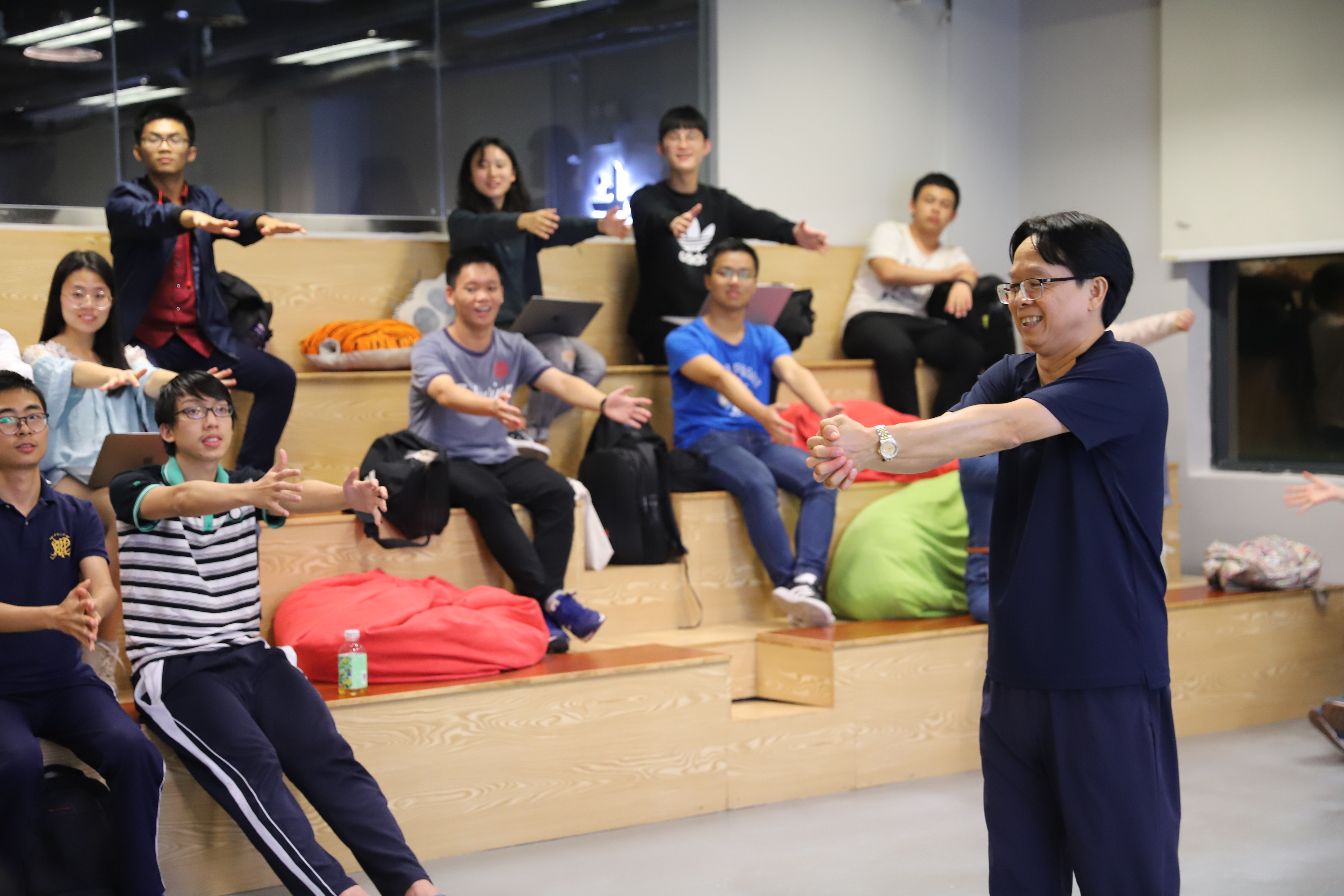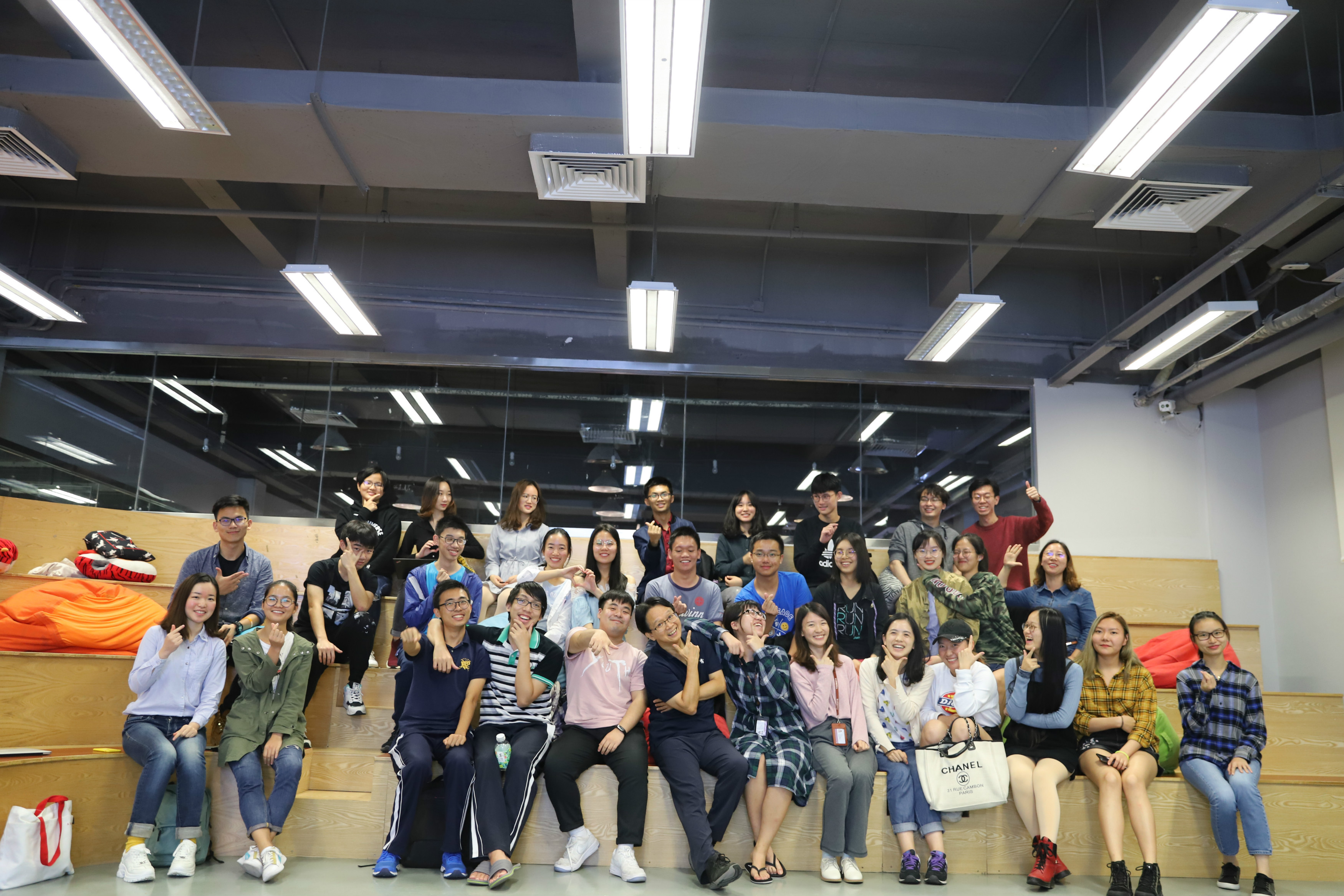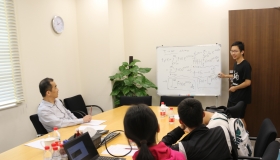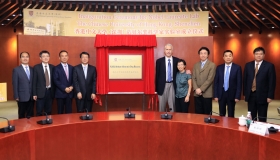The 17th Diligentia Night Talk: The Neuroscience of Stress Management
Professor Leung interpreted the neuroscience of stress management as the S-ABC model: S (Situation)-A (affective reaction) B (body) C (cognition), which helps us understand the stress response of each day.

The source of the pressure and the path of the response
Professor Leung firstly analyzed the source of the pressure and the path of the response. How do we react to the pressure of DDL and term papers? In biology, the amygdala in our brain becomes sensitive and active, so it triggers a series of physical reactions through nerve conduction, such as pupil dilation, dry mouth, accelerated heartbeat, shortness of breath, decreased function of the digestive system of the stomach, etc. When the symptoms are severe, there are symptoms of pain in some areas, such as cramps caused by severe muscle contraction. These physical reactions are once again sent back to the brain by the nerve center. The amygdala’s blood sugar rises, triggering negative emotions in the brain that are not controlled by ourselves, and then triggers our negative physical reactions and behaviors. Under long-term high pressure, the amygdala becomes very sensitive and needs a lot of sugar, so it starts another regulation system, which eventually leads to high blood sugar, high blood fat, vascular disease, and high blood pressure lasting for a long time. In addition, due to the negative reaction of the amygdala in the brain, we will start negative memories that are difficult to control, which will eventually lead to decreased attention, inefficiency in learning and work.

How to manage stress
Now that we know what causes the multiple physiological and psychological reactions under high pressure, how to effectively manage stress can be the first thing we need to learn. First, we have to think logically about how to optimize the S-ABC model, because in many cases, the situation we face is difficult to change. Then, before the final exams and papers, if we can't change the source of long-term stress, we still have other factors that can be adjusted. In this regard, Professor Leung summed up two methodologies for us. One is to obtain "love" from the surrounding life, that is, to form a good interpersonal relationship; the second is to do things according to our own interests and hobbies in the process of finding their own unique talents. Satisfaction and pleasure.

Pro. Leung’s two points of suggestion have a scientific basis. The first point, optimize the interpersonal relationship and benefit from the love of the people around. This kind of good interpersonal relationship and the interaction of interpersonal trust love can promote some hormones, which are very important factors of the brain control thoughts; At the same time, love can also promote the increase of dopamine in the human body, make the person produces pleasure, reduce the pressure of anxiety and sorrow. If this is difficult to get the intimate emotional attachment and communication from people around, keeping pets provides a good treatment method for stress management. In this way, you can receive love and trust, and help to reduce anxiety and stress. To be fair, no drug can take the place of love, so instead of looking for the doctor’s prescription, establish a good interpersonal relationship, with a positive attitude towards others. Second, look for interests and dig your own talents. From a scientific point of view, each brain structure and the nerve is unique. Thus, to match your career planning with your personal interest, personality, as well as ability, do what you like and are good at, certainly can alleviate the pressure of the work and study problems, so you should calm down and think about your interests and talents, considering that choosing what kind of major can enjoy yourselves.

“Try your best and forget the rest.” Pro. Leung dedicated these words to all the students who face the society with fierce competition, hoping everybody can form good habits and cheerfully embrace every day of life.




